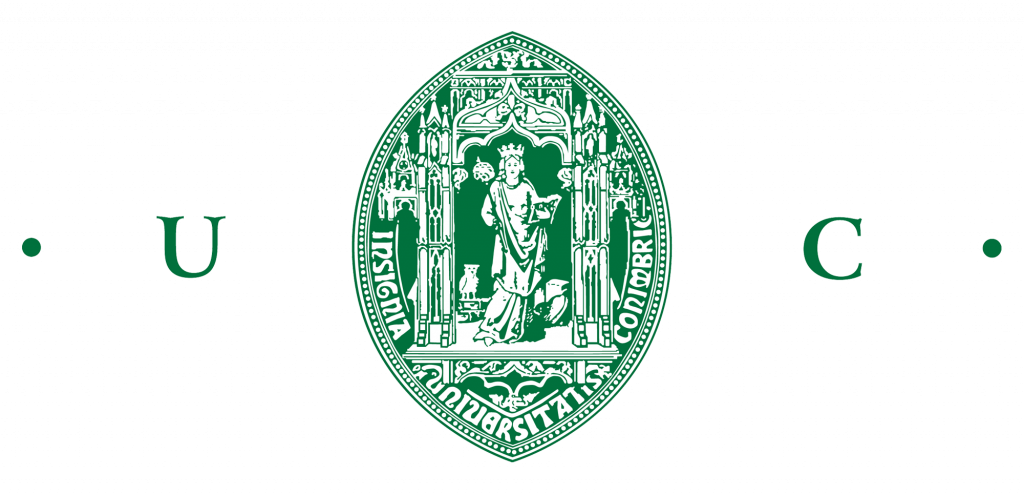Oldest Continuous University in the World
There's just something fascinating about exploring the oldest universities in the world. Many people are surprised to discover that higher education has been going on for centuries. In fact, scholars could attend college as far back as medieval times. In Latin, "university" comes from "Universitas magistrorum et scholarium." The phrase is translated roughly as "community of teachers and scholars."
Featured Programs

Mysteries of the World's Most Ancient Universities
When you think about the ancient universities of the world, many questions come to mind. What was the first university in the world? What is the oldest university in the English-speaking world? What is the oldest university in the western hemisphere? Many people never even consider the answers to these questions. Yet, for those who are naturally curious, It's quite captivating to solve the puzzles.
Historians have a lot of conflicting information about the oldest colleges in the world. But most agree that the world's most ancient schools were generally founded in the middle ages, also known as medieval times. It can be hard to pin down the exact timelines for the oldest colleges in the world. Yet, we can get a pretty good idea by researching a bit of history.
See Also: Best History Podcasts
16 Ancient Colleges
In this post, we'll explore 16 of the oldest colleges in the world. Many of these universities are still in operation. And not surprisingly, some are considered the most prestigious colleges on the globe. We'll answer questions like "what is the oldest continuously operated university in the western world?" And "where is the world's oldest university?"
You may also like: 50 Richest Universities in the World

Is It Possible Still to Attend a Historical University Overseas?
Many students wonder if attending these ancient schools today is even a possibility. And the answer is yes! Several of these schools offer excellent programs for exchange students.
Are you considering studying abroad? Then you'll definitely want to explore some of these remarkable universities. Of course, we can't vouch for the affordability of attending the institutions featured here. But, we can offer you a glimpse into what life could be like at a historical, foreign educational institution.
At the very least, we may inspire you to visit one of these awe-inspiring old-world places of learning.
Methodology for the Oldest Universities in the World
Our methodology for this article was simple. First, we examined the oldest universities in continuous operation and began to catalog them. But we also decided that although some of these ancient institutions are no longer in operation, they still deserved a place on our list. So we narrowed them down to those founded before 1500 in Europe and Africa. These regions are where higher education had its beginnings.
| University | Location | Founded |
| University of Al Qarawiynn | Fez, Morroco | 895 AD |
| AI-Azhar University | Cairo, Egypt | 780 AD |
| University of Bologna | Bologna, Italy | 1088 AD |
| University of Oxford | Oxford, England | 1096 AD |
| University of Paris | Paris, France | 1150 AD |
| University of Cambridge | Cambridge, England | 1209 AD |
| University of Salamanca | Salamanca, Spain | 1218 AD |
| University of Padua | Padua, Italy | 1222 AD |
| University of Naples Frederico II | Naples, Italy | 1224 AD |
| University of Toulouse | Toulouse, France | 1229 AD |
| University of Siena | Tuscany, Italy | 1240 AD |
| University of Murcia | Murcia, Spain | 1272 AD |
| University of Coimbra | Coimbra, Portugal | 1290 AD |
| University of Valladolid | Valladolid, Spain | 1293 AD |
| University of Perugia | Perugia, Italy | 1308 AD |
| Charles University | Prague, Czechia | 1348 |
The World's Most Ancient Higher Learning Institutions

University of Al Quaraouiyine
Fes, Morroco
Established: 895 AD

In 895 AD, Fatima al-Fihri founded a university in Morocco with funds she inherited from her father. The purpose was to spend her father's wealth on what is now known as the University of Al Qarawiynn. There's a lot of controversy about the beginnings of the University of Al Quaraouiyine. Could it really be the oldest educational institution in the world?
This ancient University began as a large mosque that grew into an Islamic School called The Madrasa. And according to many historians, it is the oldest continually operating university in the world. The institution even awarded degrees according to various levels of study. These included medicine, mathematics, Islamic studies, and more.
In 1963, AI Quaraouiyine University became a state-run, public university. Adjacent to the University is the oldest library in the world.
Fatima al-Fihri was only mentioned as a founder of the University of Al Quaraouiyine many years after her death. Some historians believe she was the driving force behind the institution. Others do not. Either way, we'd like to think that Fatima had a substantial financial and intellectual influence on this famous Morrocan University.
A few sources have claimed the college as the oldest continually operating educational institution in the world, including the Guinness World Records. The school is also on the UNESCO world heritage list.
Al-Azhar University
Cairo, Egypt
Established: 970 AD

A few historians technically regard Al-Azhar University as the oldest university in the world. This institute of higher education was not officially recognized until 1961. However, it was established as an Islamic teaching center in 970 AD.
The Library at Al-Azhar University is considered among the most important in the Middle East. It was initially established in 1005 by the Fatimids. And this was centuries years before the Vatican Library or the Oxford Bodleian Library were established. The collection at the Al-Azhar University contains nearly 600,000 manuscripts and over 9,000 books that date as far back as the eighth century. It is utterly remarkable!
The University is Egypt's longest continually operating university and its most prestigious institution of higher learning. Around two million students belong to Al-Azhar. Its primary objective is to promote Islamic Culture. However, Al-Azhar students are also introduced to many subjects, including engineering, technology, economics, chemistry, architecture, social sciences, and several other areas of study.

University of Bologna
Bologna, Italy
Established: 1088 AD

The University of Bologna is generally recognized as the oldest university in the Western world. The Holy Roman Emperor Frederick I granted the university a royal charter in 1158. However, researchers have traced the institution's origins to the year 1088. Historically, students at Bologna studied civil and canon law. And of course, more courses of study were added in the modern era.
In addition to being the world's oldest university, UNIBO is considered the first university to grant degrees. The word universitas was only coined when the school was founded.
Since its founding, UNIBO has attracted intellectuals and scholars from all over the globe. And even in the twelfth century, Bologna was a center of culture and learning. As a result, it boasts many famous alumni, including the poet Dante Alighieri.
Today, this public national university is divided into 23 schools and has a student population of over 75,000. Many come from outside of Italy. And an additional 2,000 study at the university every year as part of its exchange programs. UNIBO competes with AI Quaraouiyine for the title of the oldest continuously operating institution in the world. And indeed, when people ask, "what is the oldest, continuously operated university in the western world?" The University of Bologna is the correct answer.
University of Oxford
Oxford, England
Established: 1096 AD

What is the oldest university in the English-speaking world? That would be the University of Oxford in England. It is also the world's second-oldest university in continuous operation. According to some sources, teaching took place at Oxford from as early as 1096. The university quickly increased in size when, in 1167, Henry II forbade English students from studying at the University of Paris.
Oxford has been the focal point of controversy throughout history. For example, the Bible was translated into English at Oxford. And this was in direct opposition to the wishes of the papacy. Additionally, Henry VIII made the university acknowledge his divorce from Catherine of Aragon in 1527. Oxford was also the scene of professor Edmund Halley's accurate prediction of the return of the comet now known as Halley's Comet.
Today, Oxford University is known as a highly competitive and prestigious college with many famous alumni. For example, 28 Prime Ministers of the UK came from Oxford. Over 25,000 students attend the university. According to the school's official website, 94 percent of graduates have a job within six months of finishing a degree at Oxford. QS World University Rankings gives the University of Oxford a score of 99.5.

University of Paris
Paris, France
Established: 1150

The University of Paris (also known as La Sorbonne) was established in 1150. It is one of the most famous schools in medieval history. Since the middle ages, the school was held in high esteem for its academic programs. This was particularly true for philosophy and theology. Many royalty, popes, intellectuals, and other famous figures were educated at the University of Paris. During the French Revolution, the University of Paris closed down.
The University introduced traditions that remain centuries later. For example, it was one of the first institutes of higher learning to offer doctoral degrees. And the university founded "student nations," similar to our modern fraternities.
In 1970, the University of Paris was divided into thirteen independent universities. Several of them are still housed in the school's historical buildings. All have maintained the same high reputation as the original University. The schools are scattered throughout the city, with the highest-ranked being Sorbonne University.
Related: Best Online Theology Degree
University of Cambridge
Cambridge, England
Established: 1209 AD

The University of Cambridge is, of course, one of the most prestigious universities in the world. It is also one of the oldest universities in the English-speaking world and the second oldest university in England. According to early records, it was originally established in 1209. It was then that a group of scholars left Oxford, apparently due to some disagreement, and formed their own school. In 1231, King Henry III granted the University a royal charter. And the institution was further strengthened by the subsequent endorsements of three popes.
Cambridge University is currently made up of 31 different colleges and six schools catering to about 18,000 students. As with many universities on this list, Cambridge has a strong international student presence. About 3,500 exchange students from 120 countries attend the college.
The University is located in beautiful Cambridge, England. This city was chartered in 1207. And it seems noteworthy that public officers have been in Cambridge since the Middle Ages. Cambridge is also one of the wealthiest universities in the world. So, not surprisingly, tuition and living expenses can be high. Still, students from all over the globe attend Cambridge due to its excellent reputation and high academic standards. It is home to the largest University printing press in the world, Cambridge University Press. QS World University Rankings gives the University of Cambridge a score of 98.7. In comparison, Harvard University, the oldest college in America, has a score of 98.
University of Salamanca
Salamanca, Spain
Established: 1134 AD

Located 120 miles west of Madrid, the University of Salamanca is truly ancient. This venerable institution was originally established in 1218 by the royal decree of King Alfonso IX. Although, technically, it was founded in 1134, and teaching at the site dates back to at least 1130. This makes the University of Salamanca Spain's oldest institution of higher learning.
Salamanca offers 81 different degree courses and is noted for attracting students from Spain and beyond. Over 30,000 students attend the college. And the University is now comprised of nine campuses.
Many of the school's doctorate students are non-European, and a high number come from Latin America. In addition, the university has a robust Spanish program, providing language courses to over 7,000 students in a single year. Meanwhile, its doctorate programs include microbiology, molecular genetics, neuroscience, psychology, and prehistoric science.
Centuries back, the university played a crucial role in the early development of economic and legal sciences. Interestingly, Christopher Columbus secured support for his famous voyage at Salamanca.
University of Padua
Padua, Italy
Established: 1222 AD

The University of Padua—also known as the University of Padova—is an Italian college established in 1222. Padua is the fifth-oldest surviving university in the world. It was created when students and teachers departed the University of Bologna for greater academic liberty. The original subjects studied were theology and law, although other courses were added soon after. By the end of the 14th century, disciplines included medicine, rhetoric, astronomy, and philosophy.
The university saw early historical achievements in the field of medicine. And from its beginnings, this public national university advocated freedom of thought in both teaching and studying. Famously, Galileo Galilei taught there from 1592 until 1610.
The school is still in operation and accepting foreign students. Academia aside, those from overseas will surely enjoy the added benefits of the Italian setting and history of the city.
Currently, the University of Padua has a student body of around 65,000. The college is well known as a top scholarly and research university in Europe and worldwide.
University of Naples Frederico II
Naples, Italy
Established: 1224 AD

On June 5, 1224, the University of Naples Frederico II was founded by way of an imperial charter mandated by Frederick II. Frederick II was the King of Sicily and Holy Roman Emperor at the time. However, it was only recently, in 1987, that the university was named in Frederick II's honor. Initially, its creation was motivated by politics as much as it was by academia.
The King wanted to facilitate the learning and cultural development of students residing in Italy. The founding of the University of Naples Frederico meant that they would no longer need to take long and expensive trips abroad to get an education. Frederick II wanted to be the highest authority of the university. And he required strict loyalty to the crown from teachers and students.
Of course, things changed over time, and eventually, the University of Naples Frederico became what it is today. The school has over 93,000 students, 168 degree courses, and 87 different departments. In addition, students and staff participate in exchange programs in Asia, the Americas, and the rest of Europe.
The University of Naples Frederico has been in continuous operation since 1224. It is located in Naples, one of the world's most ancient and beautiful cities.
University of Toulouse
Toulouse, France
Established: 1229 AD

The University of Toulouse was established in 1229 as part of the Treaty of Paris. It was an arrangement that forced Count Raymond VII to give up control of the Languedoc province. Raymond VII was suspected as a heretic sympathizer. So the treaty further punished the hapless count by making him pay for the teaching of theology. Eventually, the university established medicine and law as part of the learning program.
The University was closed in 1793 because of the French Revolution. And that was the last time the institution operated as one college. In 1969, the University of Toulouse was divided into three separate universities. These schools eventually became a consortium of research and higher education establishments, each operating as a world university.
Today, over 100,000 students are enrolled in these schools. And this includes more than 11,000 multinational students. The consortium comprises seven research institutions and 23 higher education member institutions.

University of Siena
Tuscany, Italy
Established: 1240 AD

Located in beautiful Tuscany, Italy, is the University of Siena. This prestigious institution is as old as it is illustrious. This university's charter was confirmed in 1240 by Pope Innocent IV. And it was confirmed again in 1248 by Holy Roman Emperor Frederick II. The first year the school opened, the founders needed a way to pay teachers' wages. So the chief magistrate of Siena imposed a tax on local residents who rented rooms to students.
Early on, University of Siena students studied Latin, civil law, logic, and medicine (also known as natural science). The university prevailed through war, changes in authority, and suppression. This perseverance is a testimony to the commitment and resolve of Siena's residents. They guarded and advocated this public university and its interests over several centuries.
The University of Siena has grown and changed significantly over the years. Today, the school boasts a student body of over 20,000. The university also accepts foreign students and carries out exchange programs. Today, students at Siena can pursue dozens of subjects.
The school is also a UNESCO World Heritage Site. This makes it a major tourist destination with over 150,000 visitors each year.
See Also: Best PhD in International Business Online
University of Murcia
Murcia, Spain
Established: 1272 AD

The University of Murcia has existed since the 13th century. It was founded in 1272 by Alfonso X, "the Wise." He was the reigning King of Castile, León, and Galicia at the time. Located in southeastern Spain, it is home to around 38,000 students. It is the largest college in the Región de Murcia and the third-largest university in all of Spain.
The current university was founded in 1915. It has two campuses and is considered Spain's tenth oldest institution of higher learning. Although, according to its 13th-century seal, it's the third oldest Spanish university. The college has a robust international student exchange program. And each year, around 1000 students from 50 different countries attend.
The University of Murcia has over 150 degree programs for students to choose from. These include philosophy, medicine, law, biology, economics, psychology, and more.
University of Coimbra
Coimbra, Portugal
Established: 1290 AD

The University of Coimbra is another ancient learning institution. It was founded in Lisbon, Portugal, in 1290. However, it was relocated several times due to the whims of demanding kings. Eventually, it came to a permanent location in Coimbra. It is one of the oldest universities in continuous operation in the world. And it is definitely the oldest University in Portugal.
The student body at Coimbra is typically over 25,000 each year. And ten percent of them are exchange students. The University comprises three campuses and is very popular with science and technology students. In fact, the college has the largest science faculty in Portugal. But the college also offers award-winning programs in law, medicine, pharmacy, and psychology.
As you might expect from an educational institution over 700 years old, there is a strong emphasis on ancient history. Yet it pairs perfectly with the University's more modern traditions. US News & World Report ranks the University of Coimbra #399 in Best Global Universities. Students at this school enjoy a taste of medieval architecture nestled among more modern structures.
You may also like: Top 10 Colleges in the Caribbean
University of Valladolid
Valladolid, Spain
Established: 1293 AD

Located in the Spanish region of Castile-León, the University of Valladolid was founded in 1293, making it one of the most ancient universities in the world. It got its start as an offshoot of the now-defunct University of Palencia.
Initially, the institution was dedicated to teaching fundamental subjects. These included grammar, arithmetic, Latin and religious studies. The university added law, medicine, art, and science in the early 20th century. At that time, the school had seen an increasing influx of students.
Currently, the University of Valladolid offers more than 100 degrees, 17 postgraduate programs, and 50 master's degrees. As one of the foremost institutions in Spain, the university is responsible for the education of some 30,000 students. And it employs nearly 2,700 lecturers and around 950 office and service staff.
Moreover, the University of Valladolid is surprisingly inexpensive. International students pay approximately $103 per credit hour. (International students are those who do not belong to the European Union). This is significantly less than the average online degree program in the US.
University of Perugia
Perugia, Italy
Established: 1308 AD

Pope Clement V. officially recognized the University of Perugia as a studium generale in 1308. Studium generale was the customary name for a university during medieval times. It is one of the oldest universities in the world and in Italy and is still in operation.
Over seven centuries, several famous scholars have been a part of the University of Perugia. A few of these include:
- Bartolus de Saxoferrato
- Baldus de Ubaldis
- Cino da Pistoia
- Gentile da Foligno
- Albericus Gentilis
- Luca Pacioli
Many other public figures, including several Popes, were also educated at Perugia.
Today, the University comprises 14 departments, and Perugia offers a wide array of degree programs. They include nearly every subject authorized by the country's Ministry of Education, University, and Research. Approximately 25,000 students attend the University.
The University of Perugia also has a robust Direct Enrollment Program for international students. It takes place at the school's Umbra Institute. This unique program allows students to experience a traditional European-style education. At the same time, they immerse themselves in Italian culture. Students will take courses in Italian, starting with a six-week Italian language course.

Charles University
Prague, Czechia
Established: 1348 AD

Charles University is also known as the University of Prague or Charles University in Prague. It was founded in 1348 by a royal charter during the rule of the Holy Roman Emperor and King of Bohemia, Charles IV. It was the first university east of Paris and north of the Alps. Charles University is one of the oldest, continuously operating universities in Europe.
The school was modeled after those in Paris and Bologna, quickly becoming internationally renowned. Like many medieval learning institutions, it originally had four faculties. These were medicine, law, liberal arts, and theology.
After the Thirty Years' War in Europe, the university became a state-governed public institution under Emperor Joseph II. In 1882 during the Czech National Revival, the school was divided into German and Czech institutions. Both maintained a high reputation and even higher academic standards. At the German University, one of the professors was Albert Einstein.
Today, Charles University has 17 faculties (academic departments) throughout the Czech Republic. It is one of the top three prestigious universities in Central and Eastern Europe, with a student population of over 45,000.
You may also like: Best Master's in History Online
This concludes our feature on the oldest universities in the world.
Source: https://www.nonprofitcollegesonline.com/10-oldest-universities-in-the-western-world/
0 Response to "Oldest Continuous University in the World"
Post a Comment